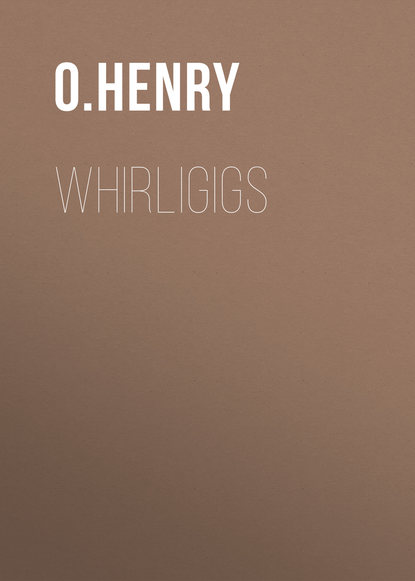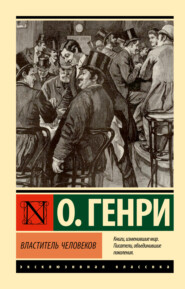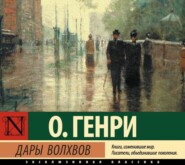По всем вопросам обращайтесь на: info@litportal.ru
(©) 2003-2025.
✖
Whirligigs
Настройки чтения
Размер шрифта
Высота строк
Поля
"My papa writes books," remarked Tommy.
The burglar jumped to his feet quickly.
"You said he had gone to the opera," he hissed, hoarsely and with immediate suspicion.
"I ought to have explained," said Tommy. "He didn't buy the tickets." The burglar sat again and toyed with the wishbone.
"Why do you burgle houses?" asked the boy, wonderingly.
"Because," replied the burglar, with a sudden flow of tears. "God bless my little brown-haired boy Bessie at home."
"Ah," said Tommy, wrinkling his nose, "you got that answer in the wrong place. You want to tell your hard-luck story before you pull out the child stop."
"Oh, yes," said the burglar, "I forgot. Well, once I lived in Milwaukee, and – "
"Take the silver," said Tommy, rising from his chair.
"Hold on," said the burglar. "But I moved away." I could find no other employment. For a while I managed to support my wife and child by passing confederate money; but, alas! I was forced to give that up because it did not belong to the union. I became desperate and a burglar."
"Have you ever fallen into the hands of the police?" asked Tommy.
"I said 'burglar,' not 'beggar,'" answered the cracksman.
"After you finish your lunch," said Tommy, "and experience the usual change of heart, how shall we wind up the story?"
"Suppose," said the burglar, thoughtfully, "that Tony Pastor turns out earlier than usual to-night, and your father gets in from 'Parsifal' at 10.30. I am thoroughly repentant because you have made me think of my own little boy Bessie, and – "
"Say," said Tommy, "haven't you got that wrong?"
"Not on your coloured crayon drawings by B. Cory Kilvert," said the burglar. "It's always a Bessie that I have at home, artlessly prattling to the pale-cheeked burglar's bride. As I was saying, your father opens the front door just as I am departing with admonitions and sandwiches that you have wrapped up for me. Upon recognizing me as an old Harvard classmate he starts back in – "
"Not in surprise?" interrupted Tommy, with wide, open eyes.
"He starts back in the doorway," continued the burglar. And then he rose to his feet and began to shout "Rah, rah, rah! rah, rah, rah! rah, rah, rah!"
"Well," said Tommy, wonderingly, "that's, the first time I ever knew a burglar to give a college yell when he was burglarizing a house, even in a story."
"That's one on you," said the burglar, with a laugh. "I was practising the dramatization. If this is put on the stage that college touch is about the only thing that will make it go."
Tommy looked his admiration.
"You're on, all right," he said.
"And there's another mistake you've made," said the burglar. "You should have gone some time ago and brought me the $9 gold piece your mother gave you on your birthday to take to Bessie."
"But she didn't give it to me to take to Bessie," said Tommy, pouting.
"Come, come!" said the burglar, sternly. "It's not nice of you to take advantage because the story contains an ambiguous sentence. You know what I mean. It's mighty little I get out of these fictional jobs, anyhow. I lose all the loot, and I have to reform every time; and all the swag I'm allowed is the blamed little fol-de-rols and luck-pieces that you kids hand over. Why, in one story, all I got was a kiss from a little girl who came in on me when I was opening a safe. And it tasted of molasses candy, too. I've a good notion to tie this table cover over your head and keep on into the silver-closet."
"Oh, no, you haven't," said Tommy, wrapping his arms around his knees. "Because if you did no editor would buy the story. You know you've got to preserve the unities."
"So've you," said the burglar, rather glumly. "Instead of sitting here talking impudence and taking the bread out of a poor man's mouth, what you'd like to be doing is hiding under the bed and screeching at the top of your voice."
"You're right, old man," said Tommy, heartily. "I wonder what they make us do it for? I think the S. P. C. C. ought to interfere. I'm sure it's neither agreeable nor usual for a kid of my age to butt in when a full-grown burglar is at work and offer him a red sled and a pair of skates not to awaken his sick mother. And look how they make the burglars act! You'd think editors would know – but what's the use?"
The burglar wiped his hands on the tablecloth and arose with a yawn.
"Well, let's get through with it," he said. "God bless you, my little boy! you have saved a man from committing a crime this night. Bessie shall pray for you as soon as I get home and give her her orders. I shall never burglarize another house – at least not until the June magazines are out. It'll be your little sister's turn then to run in on me while I am abstracting the U. S. 4 per cent. from the tea urn and buy me off with her coral necklace and a falsetto kiss."
"You haven't got all the kicks coming to you," sighed Tommy, crawling out of his chair. "Think of the sleep I'm losing. But it's tough on both of us, old man. I wish you could get out of the story and really rob somebody. Maybe you'll have the chance if they dramatize us."
"Never!" said the burglar, gloomily. "Between the box office and my better impulses that your leading juveniles are supposed to awaken and the magazines that pay on publication, I guess I'll always be broke."
"I'm sorry," said Tommy, sympathetically. "But I can't help myself any more than you can. It's one of the canons of household fiction that no burglar shall be successful. The burglar must be foiled by a kid like me, or by a young lady heroine, or at the last moment by his old pal, Red Mike, who recognizes the house as one in which he used to be the coachman. You have got the worst end of it in any kind of a story."
"Well, I suppose I must be clearing out now," said the burglar, taking up his lantern and bracebit.
"You have to take the rest of this chicken and the bottle of wine with you for Bessie and her mother," said Tommy, calmly.
"But confound it," exclaimed the burglar, in an annoyed tone, "they don't want it. I've got five cases of Château de Beychsvelle at home that was bottled in 1853. That claret of yours is corked. And you couldn't get either of them to look at a chicken unless it was stewed in champagne. You know, after I get out of the story I don't have so many limitations. I make a turn now and then."
"Yes, but you must take them," said Tommy, loading his arms with the bundles.
"Bless you, young master!" recited the burglar, obedient. "Second-Story Saul will never forget you. And now hurry and let me out, kid. Our 2,000 words must be nearly up."
Tommy led the way through the hall toward the front door. Suddenly the burglar stopped and called to him softly: "Ain't there a cop out there in front somewhere sparking the girl?"
"Yes," said Tommy, "but what – "
"I'm afraid he'll catch me," said the burglar. "You mustn't forget that this is fiction."
"Great head!" said Tommy, turning. "Come out by the back door."
XX
A CHAPARRAL CHRISTMAS GIFT
The original cause of the trouble was about twenty years in growing.
At the end of that time it was worth it.
Had you lived anywhere within fifty miles of Sundown Ranch you would have heard of it. It possessed a quantity of jet-black hair, a pair of extremely frank, deep-brown eyes and a laugh that rippled across the prairie like the sound of a hidden brook. The name of it was Rosita McMullen; and she was the daughter of old man McMullen of the Sundown Sheep Ranch.
There came riding on red roan steeds – or, to be more explicit, on a paint and a flea-bitten sorrel – two wooers. One was Madison Lane, and the other was the Frio Kid. But at that time they did not call him the Frio Kid, for he had not earned the honours of special nomenclature. His name was simply Johnny McRoy.
It must not be supposed that these two were the sum of the agreeable Rosita's admirers. The bronchos of a dozen others champed their bits at the long hitching rack of the Sundown Ranch. Many were the sheeps'-eyes that were cast in those savannas that did not belong to the flocks of Dan McMullen. But of all the cavaliers, Madison Lane and Johnny McRoy galloped far ahead, wherefore they are to be chronicled.
Madison Lane, a young cattleman from the Nueces country, won the race. He and Rosita were married one Christmas day. Armed, hilarious, vociferous, magnanimous, the cowmen and the sheepmen, laying aside their hereditary hatred, joined forces to celebrate the occasion.

















